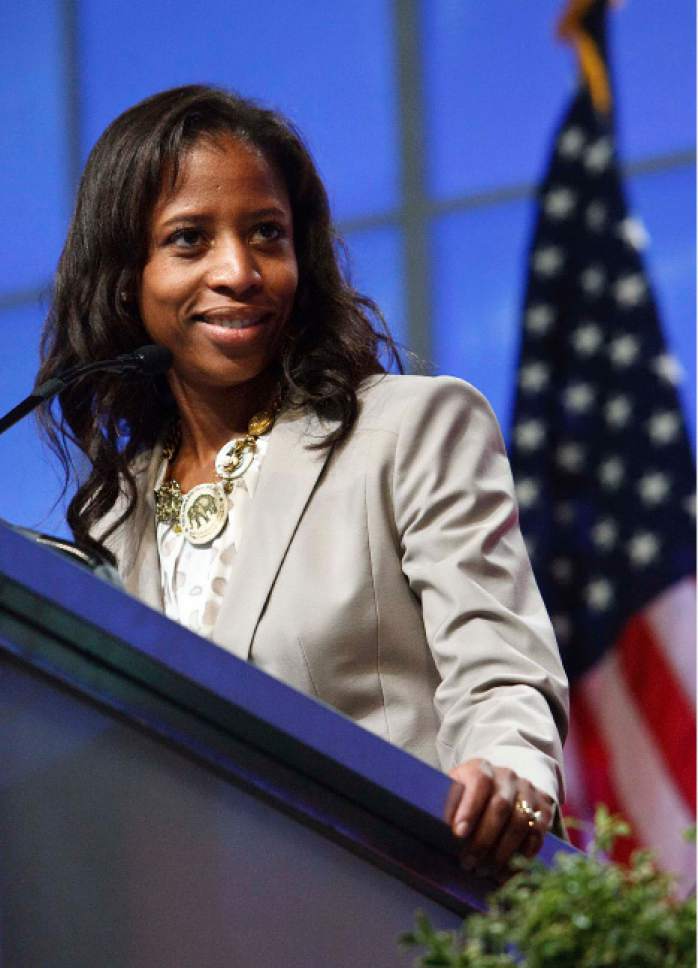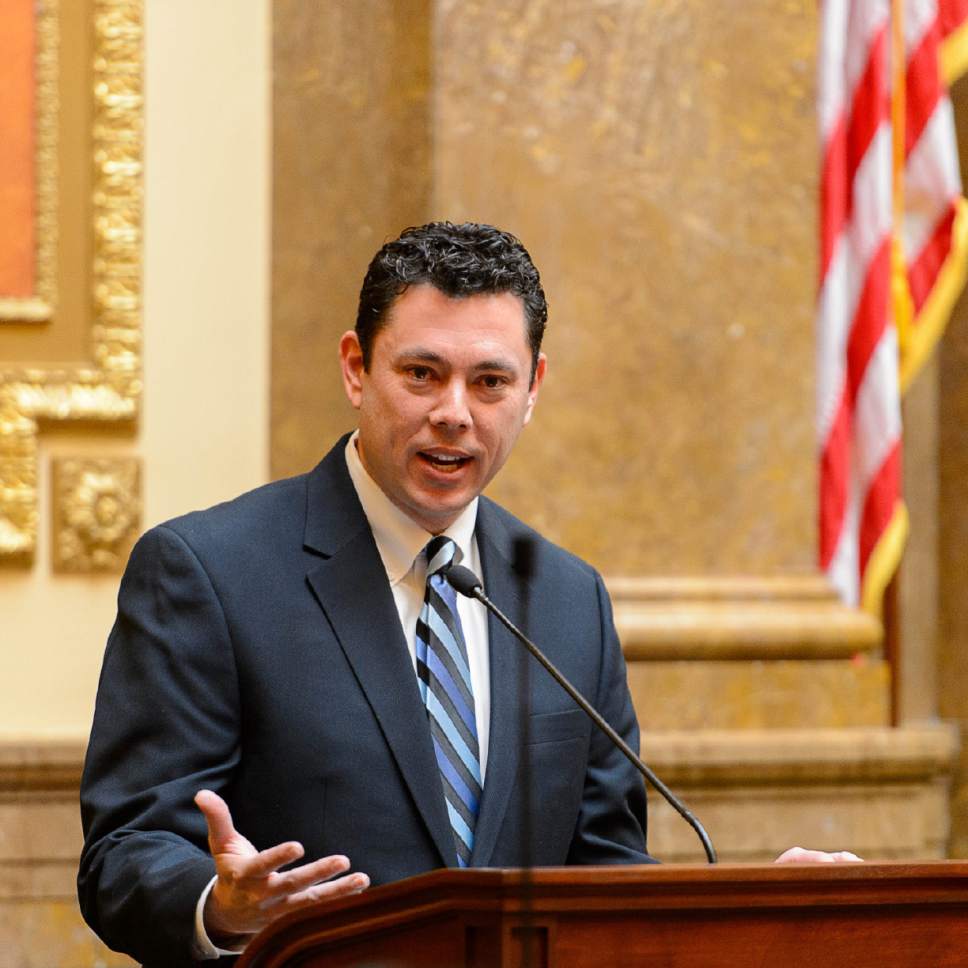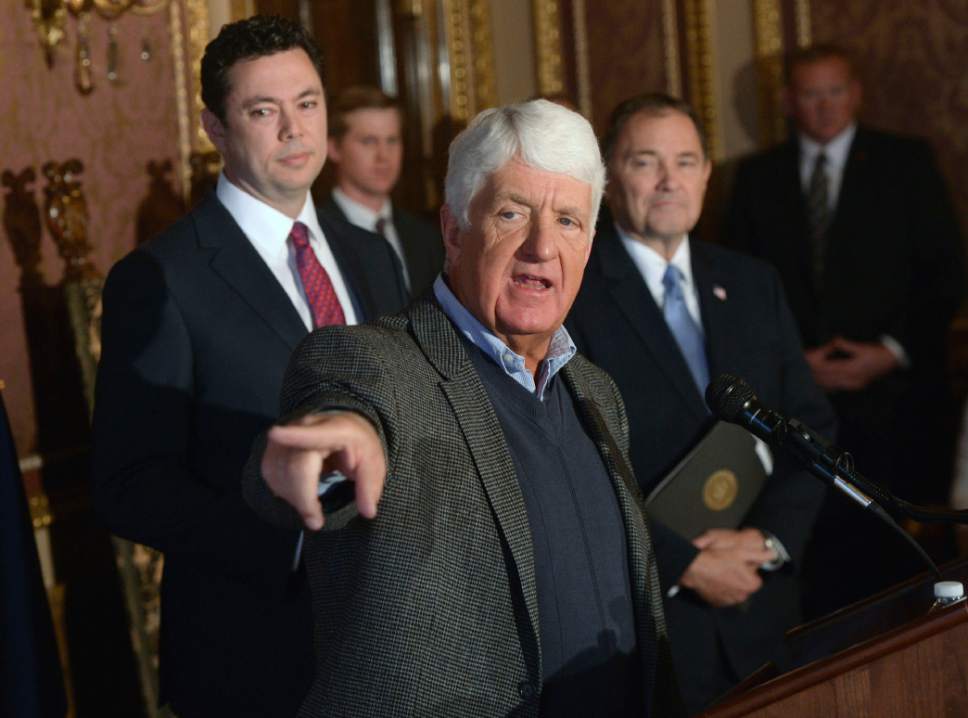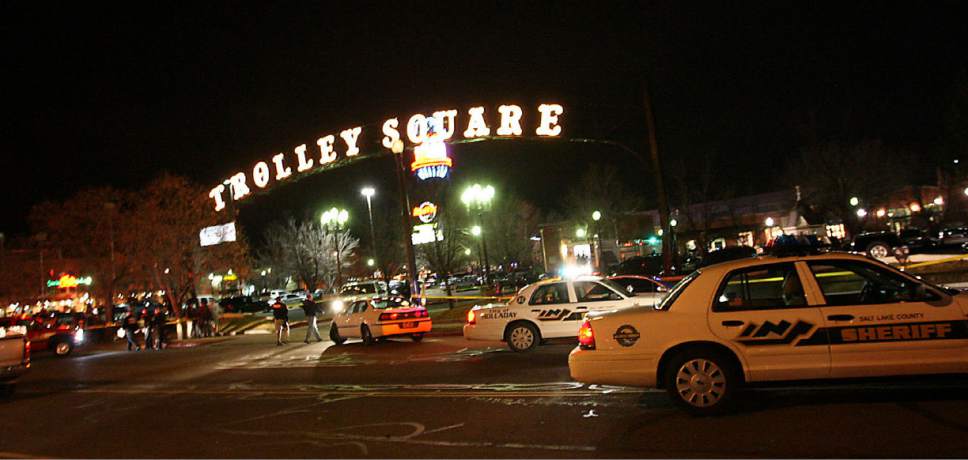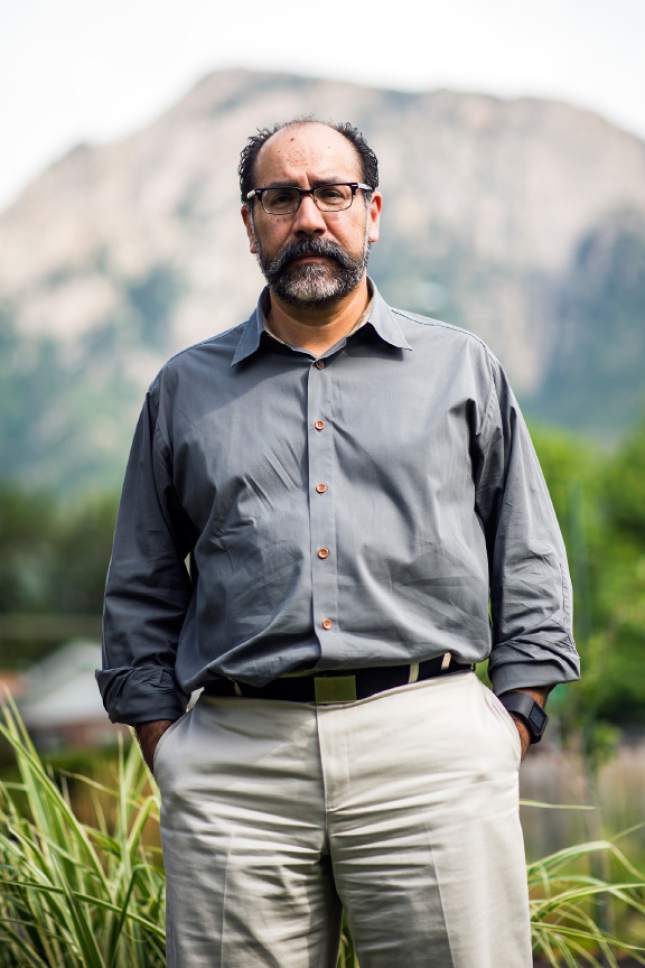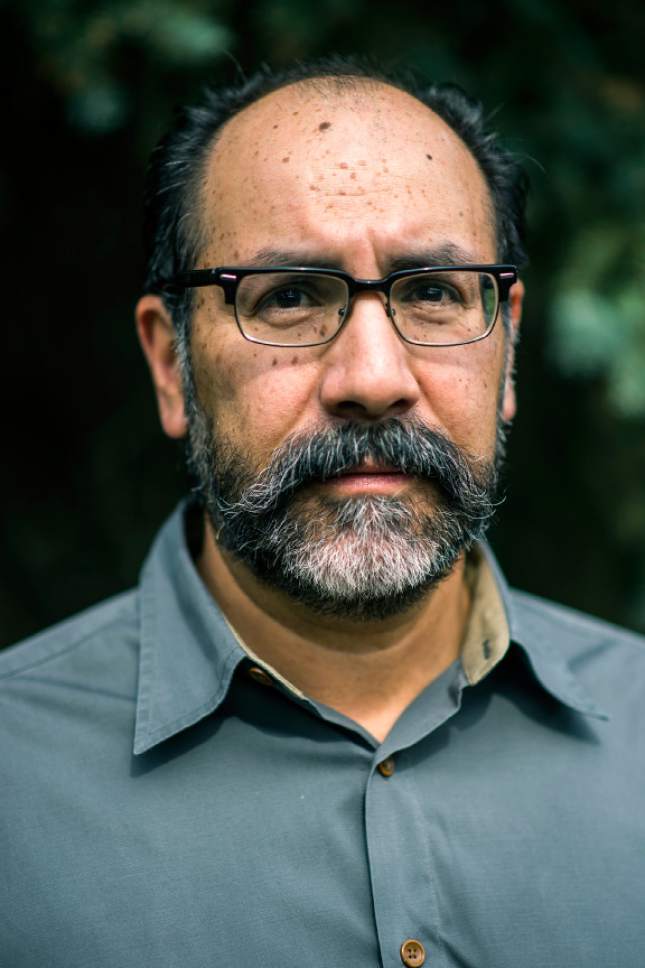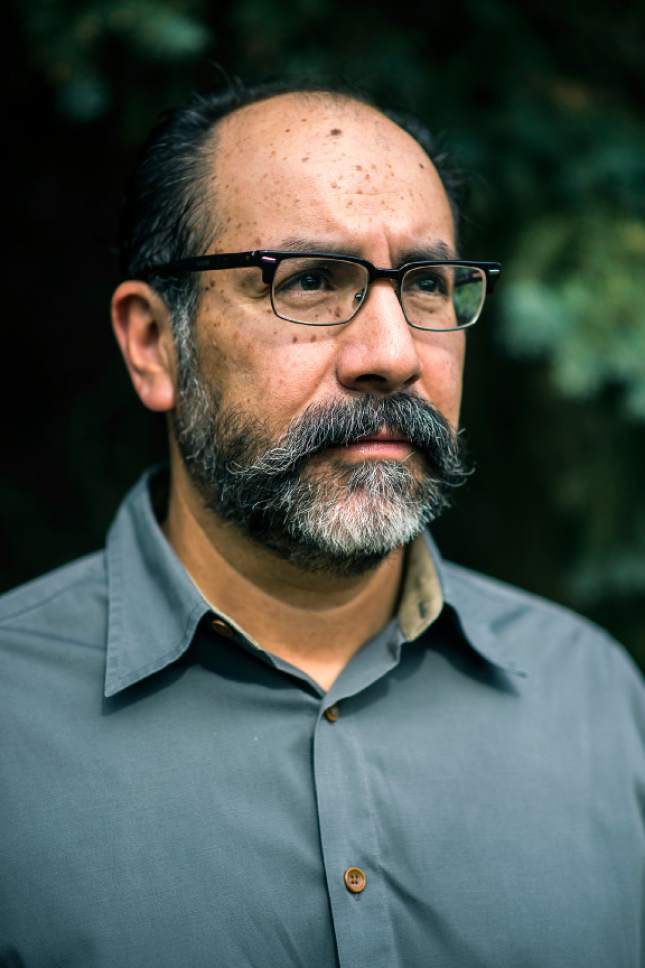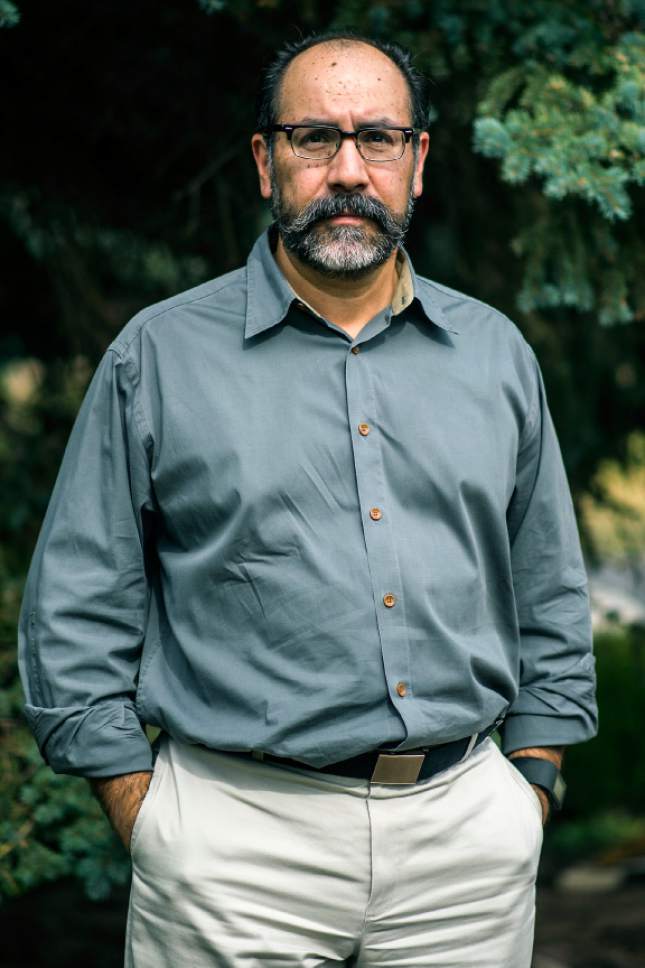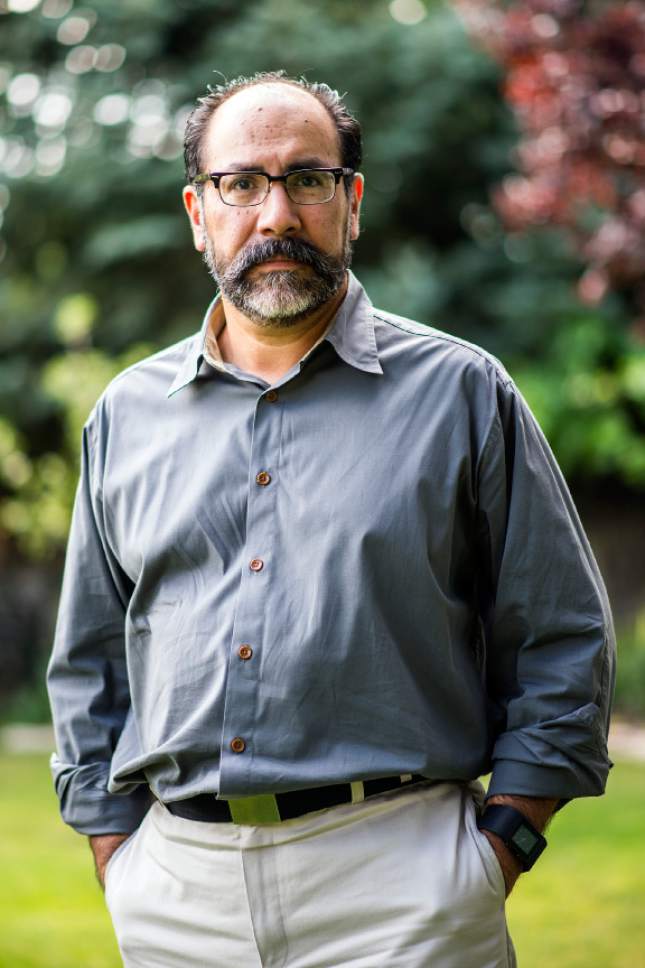This is an archived article that was published on sltrib.com in 2016, and information in the article may be outdated. It is provided only for personal research purposes and may not be reprinted.
Guns have been part of Alex Gonzales' life since he was little. He now owns 10 firearms, including several hunting rifles and a few handguns he uses for target shooting.
The 56-year-old Utahn embraces the Second Amendment but also believes gun owners, such as himself, need to give up some of their liberty to make it more difficult for terrorists and the mentally ill to commit atrocities such as the June 12 nightclub shooting in Orlando, Fla., that killed 49 people.
Gonzales wants to expand background checks to all gun sales and limit the size of magazines. He believes there should be gun licenses, similar to those required for drivers.
"We have to start somewhere, and I think so many of the [gun] extremists, if you will, worry about a complete ban," he said. "Nobody is trying to do that. We are trying to make these small steps just so we can start to get where gun ownership gets a little more logical and safer for our country."
Gonzales, of Millcreek, is one of roughly 140 Salt Lake Tribune readers who shared their views on gun control through the Utah Public Insight Network, many offering nuanced calls for at least tweaks in gun laws in reaction to mass shootings, some committed by people claiming allegiance to terrorist organizations.
But so far — after Orlando, Fla.; San Bernardino, Calif.; Charleston, S.C.; and other tragedies — Congress has done little more than take show votes on proposals with no serious chance of becoming law. And Utah's six federal officeholders have shown little interest in creating new restrictions on who can own a gun or what kinds of firearms are legal.
—
Few fixes • "There are few, if any, legislative fixes that would remedy some of the things that are taking place, and actually [such changes] may do more harm than good," warned Rep. Rob Bishop, R-Utah, a former lobbyist for an affiliate of the National Rifle Association. "If we are very serious about stopping this cycle of violence, there has to be something bigger than a legislative fix. It goes to the very essence and soul of people. It means a change of heart, not a change of statute."
While Utah's Republican members have supported GOP-led measures on gun rights, they have lockstep opposed legislation that would expand background checks or make it more difficult to buy firearms. Such moves are ineffective, they say, and point out that most guns used in recent mass shootings were obtained legally.
"Never say never," Bishop said, "but I have yet to hear of anything that would make that type of a difference."
All six of Utah's members have scored a top rating with the NRA in recent years, with Sen. Orrin Hatch even garnering an A-plus from the group in his 2012 bid for a seventh term.
Hatch's office pushed back when asked about his opposition to expanding background checks, noting the Utah senator had voted for an amendment by Sen. Chuck Grassley, R-Iowa, that, supporters said, would improve the screening process and offer incentives to states to share mental-health records with the federal government.
Gun-control advocates said that amendment was a gun-lobby-backed approach that wouldn't touch the sale of guns through unlicensed sellers, and actually would weaken current law.
Hatch cited a report by The New York Times that said guns used in the last 16 mass shootings were legally purchased.
"When it comes to background checks, in particular, I believe that much of the conversation misses the point." Hatch said in a statement. "Clearly the issue is not the number of background checks being conducted, or where they're being conducted, but rather how they're being conducted, and what information is being considered as part of these checks."
There's common ground, Hatch said, though he faults those on the other side of the debate for not working to strike a compromise.
—
Public opinion • Americans generally appear to back proposals recently touted by Democrats.
A new national Quinnipiac poll, conducted in late June after the Orlando attack, found massive public support for banning people on terrorist watch lists from buying a gun (86 percent) and for expanding background checks to all sales (93 percent). Utah's senators opposed such legislation.
"American voters clearly are worried about guns," said Tim Malloy, assistant director of the Quinnipiac University Poll, based in Connecticut. "They want to make it harder for bad people to get them and believe it can be done without penalizing legitimate gun owners."
First-term Rep. Mia Love, R-Utah, said that in the aftermath of tragedies, leaders should avoid the "temptation to give in to strident voices calling for 'solutions' that really won't do anything."
"There has already been a reactionary push in Congress to pass new gun-control legislation," Love said in a statement. "Unfortunately the ideas being put forward would not have stopped this evil act. We shouldn't pass laws with naive hope that it will stop similar incidents."
Love did not offer solutions for mass shootings beyond saying the administration should enforce the many laws already on the books.
Freshman Sen. Mike Lee, R-Utah, voted against legislation to block those on the terrorist watch list from obtaining guns and argued bills brought up in reaction to mass shootings should be judged not on emotion, but on whether they would have prevented the violence.
"We should judge it based on what it does, its implications for constitutional rights and what it would do to protect Americans and what it would do for law-abiding persons versus what it would do to deter the kind of violence that we want to avoid," Lee said.
In an email to constituents, Lee went further, castigating the proposals Democrats had put forward as running "roughshod" over constitutional rights.
"Everyone agrees that terrorists should be prevented from purchasing guns, but this proposal would deny Americans their Second Amendment rights based on a mere suspicion from the FBI that they are engaged in terrorist activity," Lee wrote. "The denial of a constitutional right should require more proof than a reasonable suspicion — a standard so low that it doesn't even justify an arrest."
—
Debate • Many Republicans countered calls for gun control by pointing at shootings elsewhere, such as in Brussels, Belgium, and Paris, where it's illegal, for the most part, to own guns. That's the point Rep. Chris Stewart, R-Utah, raised in a Facebook Live video, saying that "controlling access to weapons" isn't the answer.
"You know what, the Constitution still matters. And the Second Amendment still matters," Stewart said. "And we have to defend those constitutional rights."
Rep. Jason Chaffetz, R-Utah, said those on opposite sides of the gun rights/gun control debate may never agree on some things, but all should strive to find patches of common ground.
"There's no one simple solution that solves all the problems but I do think we can come together in a bipartisan way to address mental health," Chaffetz said. "That is a factor of crime that's taking a lot of resources away from the criminal-justice system and I think has been a major contributing factor to some of the mass shootings we've seen lately."
Beyond that, he said, barring law-abiding people from buying guns does nothing to thwart random shootings or crime.
"Taking guns away from good guys," Chaffetz said, "I don't think that solves anything."
As the debate continues to roil Congress, with more votes expected in the House and Senate later this month, The Tribune asked its readers if recent attacks made them more inclined to support gun-control proposals. Most of the respondents said they already have deep-seated views on the issue.
Some fell along predictable lines, such as Jason Kay, a member of the NRA, who opposes any gun control ("Defenseless people will always lose") and politically liberal people like Robert Hodge who don't own guns and want major new restrictions ("We can't let this slaughter go on and on without making reasonable changes to the laws").
But a high number landed somewhere in the middle.
—
Common ground? • Carl Willden, 67, from Delta, believes more people should own guns and carry them when they go out in public. He generally looks at gun control skeptically.
"Putting restrictions on law-abiding people, leaving them unable to protect themselves, will only make the problem worse," he said.
Still, Willden, a gun owner, is in favor of broader background checks with waiting periods.
Gonzales, the avid hunter, has sold about two dozen firearms through the years and has been a regular attendee at gun shows. He's uncomfortable with how easy it is to buy a gun without any paper trail or background check and he's seen some purchasers that he described as "a little spooky."
He believes a series of gun-control measures would have long-term benefits, but probably little short-term effect. In the face of future restrictions, he figures, gun manufacturers would likely step up production of large-capacity magazines and assault rifles.
"It is probably going to take two or three generations for things to change, the way the culture is," he said.
Jake Bell, from Sandy, doesn't think he or people like him should be able to own a semiautomatic weapon. He has obsessive compulsive disorder.
When he's on his medication, he's fine, but when he's not, he's experienced some breaks from reality, such as believing he's committed a horrible crime, when he's done no such thing.
"I couldn't differentiate between reality and the world the mental illness was creating for me," he said. "For those where mental illness leads them down a violent path, it is scary to think of what they could be capable of."
Bell hasn't had violent thoughts, but he has been suicidal, and because of this he's asked his parents to take possession of his hunting rifle and muzzleloader for the time being. He believes he should be able to go hunting with his dad and brother or own a pistol, but he draws the line at more powerful weapons capable of shooting many bullets in a short amount of time, such as the one used by Orlando shooter Omar Mateen.
"I have some brain-chemistry issues and it should preclude me from owning an automatic or semiautomatic weapon," said Bell, who believes the government should ban anyone with a history of mental illness from owning such guns. "It may seem like an extreme solution, but it is a solution that would save lives."
One common thread among supporters and opponents of gun control was a willingness to allow the Centers for Disease Control and Prevention to study gun violence, something which is now banned by law.
There's been some bipartisan movement, particularly in the Senate, toward legislation meant to make it harder for people with ties to terrorist organizations to obtain guns, but that bill's chances of becoming law still seem remote.
Will Nesse, a 39-year-old Salt Lake City resident, worries that as Congress continues to debate the issue, people considering a mass shooting of their own will take note of how easy it is to get a high-powered semiautomatic rifle.
"Orlando," he predicts, "is the harbinger for more to come."
— This story was informed by sources in the Utah Public Insight Network. To become a news source for The Salt Lake Tribune, go to sltrib.com/upin.
Utah's members of Congress
• Orrin Hatch: Blames gun-control advocates for lack of compromise. "Much of the conversation misses the point."
• Mike Lee: Practical solutions over emotion. Need to weigh impact on "constitutional rights [with] what it would do to protect Americans."
• Rob Bishop: "Never say never, but I have yet to hear of anything that would make … a difference."
• Jason Chaffetz: Would support mental-health restrictions. But "taking guns away from good guys — I don't think that solves anything."
• Chris Stewart: Second Amendment matters. "Controlling access to weapons" isn't the answer.
• Mia Love: Enforce current gun laws. Resist "temptation to give in to strident voices calling for 'solutions' that really won't do anything."
—
Other voices
• Alex Gonzales, Millcreek: "We have to start somewhere" to reach a place where "gun ownership gets a little more logical and safer for our country."
• Carl Willden, Delta: Favors broader background checks. But "putting restrictions on law-abiding people … will only make the problem worse."
• Jason Kay, Herriman. Opposes any gun control. "Defenseless people will always lose."
• Robert Hodge, Cedar City. Doesn't own guns. "We can't let this slaughter go on and on without making reasonable changes to the laws."
• Jake Bell, Sandy. People with history of mental illness should be banned from owning semiautomatic weapons. "It may seem like an extreme solution, but it is a solution that would save lives."


